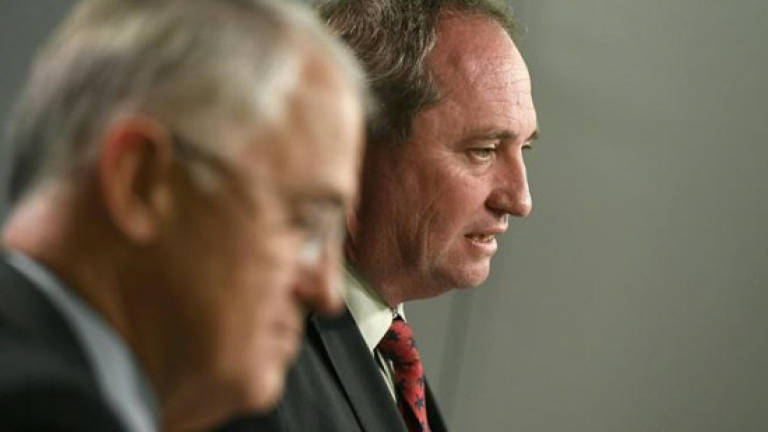Australia's 'citizenship seven' face court in political saga

SYDNEY: Seven politicians embroiled in a dual citizenship crisis faced Australia's highest court Tuesday in the first of three days of hearings that could upend the government's one-seat parliamentary majority.
The lawmakers, from different parties, had their cases referred to the High Court after falling afoul of a previously obscure constitutional rule that bars dual citizens from sitting in parliament.
The most critical case involves Deputy Prime Minister Barnaby Joyce, whose potential ouster from parliament could jeopardise Malcolm Turnbull's coalition government.
Joyce, the leader of the rural-based National Party, is Australian-born but found out in Aug that he had automatically acquired New Zealand citizenship through his father.
His deputy and upper house Senator Fiona Nash, fellow Nationals Senator Matt Canavan and four other senators from minor parties are also caught up in the controversy.
Solicitor-General Stephen Donoghue is arguing that the cases involving foreign-born politicians – One Nation's Malcolm Roberts (India) and the Greens' Scott Ludlam (New Zealand) – should be treated differently from those who inherited foreign nationality by descent.
Donoghue, who is leading the government's case, told the full bench in Canberra that Roberts and Ludlam fell into the category of those who had knowledge of their status as dual citizens but "shut their eyes to it", Fairfax Media reported.
The other five, all born in Australia except Greens Senator Larissa Waters who left Canada as a baby, had not breached the constitution as they were unaware of their overseas citizenship, he added.
Joyce has since formally renounced his New Zealand citizenship.
If the court disqualifies him from parliament, he would have to recontest his seat in a by-election, extending the political uncertainty for the government.
The dual citizenship rule was originally inserted into the 1901 constitution to ensure parliamentarians were loyal solely to Australia.
However, critics say it is out of step with the country's modern reality, where 50% of the population are either foreign-born or the children of immigrants. — AFP